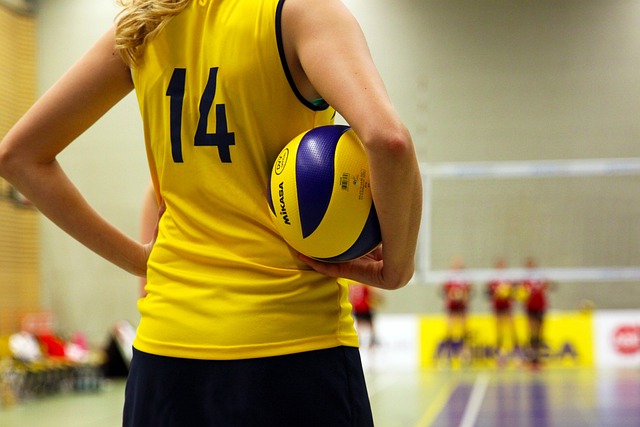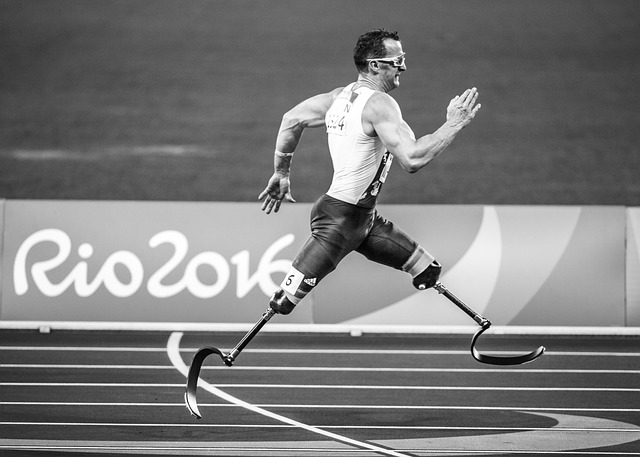
Are you looking to take your athletic performance to the next level?
The fusion of sports psychology in athletic training can be the key to unlocking your full potential.
By developing mental resilience, enhancing focus and concentration, setting goals, managing performance anxiety, and building confidence and motivation, you can maximize your physical abilities and achieve peak performance.
In this article, we will explore how incorporating sports psychology techniques into your training regimen can help you become a stronger, more successful athlete.
Key Takeaways
- Practice mindfulness and positive self-talk to develop mental resilience and overcome obstacles in athletic training.
- Incorporate mindfulness techniques, deep breathing exercises, and visualization to enhance focus and concentration.
- Set clear goals, create a roadmap for success, and utilize mental imagery to visualize success and reduce anxiety.
- Use relaxation techniques, deep breathing exercises, visualization, and positive self-talk to manage performance anxiety and boost confidence in athletic training.
Developing Mental Resilience
You can develop mental resilience by practicing mindfulness and positive self-talk.
Developing mental toughness is an essential aspect of overcoming adversity in sports and life.
Mindfulness involves being fully present in the moment, paying attention to your thoughts and emotions without judgment. It allows you to observe any negative or self-defeating thoughts that may arise and replace them with positive affirmations.
Positive self-talk is another powerful tool for building mental resilience. By consciously choosing to focus on encouraging and empowering thoughts, you can overcome obstacles and challenges with a stronger mindset.
When faced with setbacks or failures, remind yourself that they are opportunities for growth and learning. Embrace the process of developing mental toughness and watch as it positively impacts your athletic performance and overall well-being.

Enhancing Focus and Concentration
Improve your ability to concentrate and stay focused during physical activity by incorporating mindfulness techniques. Enhancing your focus and concentration can greatly impact your performance on the field or in the gym.
Here are some strategies to help you improve your attention span:
- Practice deep breathing exercises to calm your mind and increase your focus.
- Use visualization techniques to imagine yourself successfully completing a specific task or goal.
- Break down complex tasks into smaller, more manageable steps to prevent overwhelm.
- Incorporate meditation into your daily routine to train your brain to stay present and focused.
By implementing these techniques, you can develop a stronger mind-muscle connection, allowing you to fully engage in each movement and perform at your best.
Don't let distractions hinder your progress; take control of your focus and achieve peak performance.
Setting Goals and Visualizing Success
Imagine yourself achieving your goals and visualizing success to enhance your performance. Goal setting plays a vital role in sports psychology, as it provides athletes with direction and motivation. By setting clear and realistic goals, you create a roadmap for success and give yourself something to strive for.
Moreover, goal setting enables you to focus your efforts and prioritize tasks that will bring you closer to achieving those goals.
In addition to goal setting, mental imagery is another powerful tool used by athletes to enhance their performance. Through mental imagery, you can vividly imagine yourself executing skills perfectly or successfully completing a competition. This visualization technique helps build confidence, reduces anxiety, and improves concentration.
When combined with goal setting, mental imagery allows you to mentally rehearse the steps needed to achieve your objectives.
By incorporating both goal setting and mental imagery into your athletic training routine, you can unlock the power of your mind and set yourself up for success on the field or court. Remember that freedom comes from discipline and focus – so utilize these techniques to unleash your potential.

Take a deep breath and remind yourself that managing performance anxiety is essential for optimal athletic performance.
When it comes to competitive sports, anxiety can hinder your abilities and prevent you from performing at your best. To combat this, athletes can utilize relaxation techniques to calm their nerves and stay focused.
Deep breathing exercises, progressive muscle relaxation, and visualization can all help reduce anxiety levels before a big game or event.
Additionally, positive self-talk is crucial in combating negative thoughts and boosting confidence. Remind yourself of your past successes and focus on the present moment rather than worrying about the outcome.
By incorporating these relaxation techniques and maintaining a positive mindset through self-talk, you can effectively manage performance anxiety and unlock your full potential on the field or court.
Building Confidence and Motivation
Building confidence and motivation is essential for athletes to perform at their best. Overcoming self-doubt and improving performance mindset are key aspects of building this foundation.
Confidence allows athletes to trust in their abilities, take risks, and push past their limits. It gives them the belief that they can achieve greatness, even in the face of adversity.
Motivation, on the other hand, provides the drive and determination needed to consistently put in the hard work required for success. By setting goals, visualizing success, and maintaining a positive mindset, athletes can stay motivated even when faced with challenges.
Building confidence and motivation requires a combination of mental exercises such as positive self-talk and visualization techniques, as well as physical training to strengthen skills and improve overall performance.

With these tools in place, athletes can unlock their full potential and achieve extraordinary results.
Frequently Asked Questions
How can athletes overcome past failures and setbacks to develop mental resilience?
To build mental toughness and overcome self-doubt, athletes must embrace past failures as learning opportunities. By reframing setbacks as stepping stones to success, they can develop resilience and thrive in the face of adversity.
What strategies can be used to improve focus and concentration during intense training sessions or competitions?
To maintain mental toughness during long training sessions, employ strategies like setting specific goals, breaking the session into smaller tasks, and using positive self-talk. Techniques for staying present during competition include focusing on breathing and visualizing success.
How can athletes effectively set goals and use visualization techniques to enhance their chances of success?
To enhance your chances of success, use goal setting strategies and visualization techniques. Set specific, measurable goals and create a detailed mental picture of achieving them. This will help you stay focused and motivated during training sessions or competitions.
To manage performance anxiety and reduce pre-event nerves, you can try deep breathing exercises, positive self-talk, and visualization techniques. These proven methods help calm your mind, boost confidence, and enhance focus for optimal athletic performance.
To consistently perform at your best, focus on building self-belief and maintaining motivation. Develop a positive mindset, set achievable goals, visualize success, seek support from others, and embrace challenges as opportunities for growth.
 SportsHollywoodLifestyleFashionHome & GardenTrendsPrivacy PolicyTerms And Conditions
SportsHollywoodLifestyleFashionHome & GardenTrendsPrivacy PolicyTerms And Conditions
